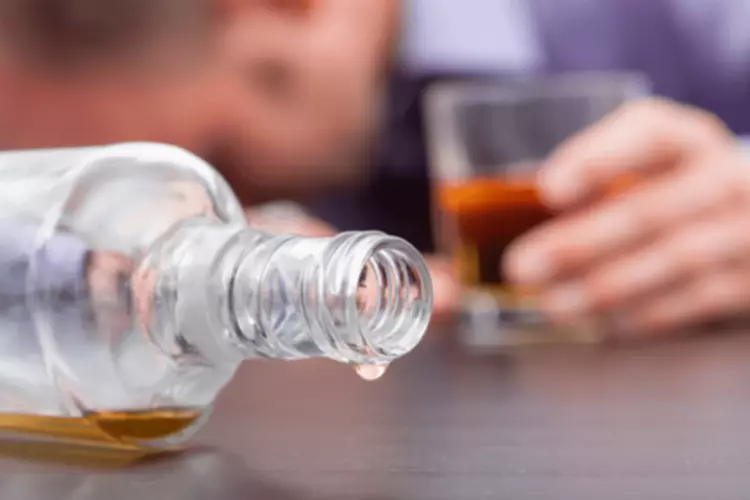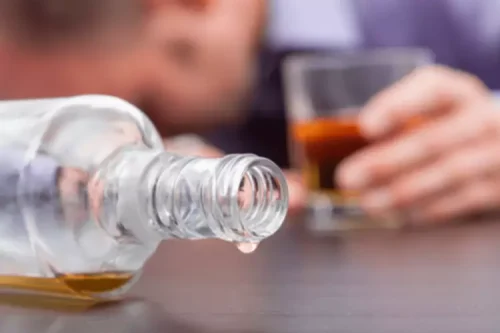
Alcohol is considered a source of “empty calories.” Unlike foods that contain essential nutrients, alcohol adds calories to your diet without providing nutritional benefits. This imbalance can lead to overeating and cravings for high-calorie foods, contributing to weight gain. Women who participated in binge drinking were not only more likely to have obesity but were also more likely to be attempting weight loss. If you’re working on losing weight, then you know it can involve a lot of ups and downs (literally). You’ve likely considered what you’re eating, what you’re not eating and of course, how much you’re moving.
Metabolism
There is no way to determine where excess body fat will accumulate. People have said drinking too much beer can give you a larger stomach (or a “beer belly”), but there is no scientific evidence to support this claim. Different types of alcoholic drinks vary in calorie content, with some being higher than others.
- “Across the board, for people who are trying to lose some weight, cutting out empty calories is a good place to start,” emphasizes Dr. Heinberg.
- Alcohol can also affect hunger levels, which may lead you to snack more, which then causes you to consume more calories, which ultimately may cause weight gain.
- Drinking can also contribute to severe health conditions such as liver disease, osteoporosis, dementia and certain cancers.
- Additionally, medications such as antidepressants commonly prescribed for depression can contribute to weight gain by increasing appetite.
Healthy Buffalo Chicken Dip

Quitting alcohol often means cutting down on extra calories from alcoholic drinks, which are notorious for their high-calorie content. By eliminating these empty calories, you reduce your overall calorie intake, aiding in weight loss and, specifically, reducing abdominal fat. The biggest tip is to have moderate drinking and avoid heavy drinking at all costs. 1 to 2 alcoholic beverages in a day Substance abuse should be able to be burned off by your body before they lead to weight gain. Well, the good news is you can still lose bodyweight from consuming alcoholic drinks if you’re doing it right.
Medication-assisted weight loss with a future focus
Even one night out at the bar with your friends will likely gain you several hundred empty calories. And, mixed drinks that contain soda or fruit juice have even more calories. This way, you can be more calculated in what you order and avoid making choices that can lead to eating junk food. In general, all levels of alcohol intake can affect digestion and absorption of nutrients. If you are trying to lose weight, decreasing your alcohol calories is a worthwhile change. Although certain types of alcohol may potentially have health benefits, they are still at the bottom of the priority list for managing your health.
- A simple vodka, lime, and club soda will be one of the best bets if you don’t want to keep the pounds off.
- According to experts, the question of whether alcohol can ever be good for you is a complicated one, so buckle up — and be prepared to give up those “half a bottle of wine” nights for good.
- Below, we examine how alcohol can affect your heart, your weight, your liver and your risk of cancer.
Alcohol use of all levels can impair digestion and absorption of these nutrients, which can significantly affect the metabolism of bodily organs that play a vital role in weight management. When alcohol does all alcohol make you gain weight is consumed, the body breaks it down into energy before all other macronutrients, such as carbohydrates, proteins, and fats. While you don’t need to quit alcohol to live a healthier lifestyle, the main problem lies in binge drinking. Excessive alcohol use increases your weight and puts you at risk for long-term health complications. However, they add more calories to your diet and can cause weight gain.
Plus, most alcoholic beverages have a lot of energy but little nutritional value, which is where the term ‘empty calories’ comes from. There are several direct and indirect ways that heavy drinking can make you gain weight or, more specifically, gain body fat. Alcohol intake of all levels can lead to impaired digestion and absorption of these nutrients. This can greatly affect the metabolism of organs that play a role in weight management. A recent animal study found that mice given ethanol over a period of three days demonstrated a significant increase in food intake.
Avoid Drinks High in Sugars and Calories
Consuming foods and drinks high in sugar can quickly lead to weight gain. The consumption of alcoholic beverages can impair proper digestive function by causing stress in the stomach and intestines. This effect can result in impaired digestive secretions and passage of food through the gastrointestinal tract. When you get hungry while drinking, consider having vegetables and water instead of high-calorie foods. This type of diet can help you avoid over-consuming calories.

While calories are not the most important thing to look at when considering what to eat or drink, sugar has a harmful impact on all of our bodies, especially when we drink alcohol. When selecting alcoholic beverages, prioritize options with lower calorie content. Opt for light beers, https://ecosoberhouse.com/ wine spritzers, or spirits with low-calorie mixers. This way, you can enjoy a drink while minimizing its impact on your overall calorie count. Establishing clear limits on alcohol intake is essential for successful weight management.
Cancer risk

The combination of emotional eating and increased appetite from medication can make managing weight more challenging for those struggling with depression. Additionally, medications such as antidepressants commonly prescribed for depression can contribute to weight gain by increasing appetite. When alcohol damages the liver, its ability to break down fats is impaired, leading to fat accumulation in the body, especially around the abdomen. That’s because your body already has processes in place that allow it to store excess proteins, carbohydrates and fats.
